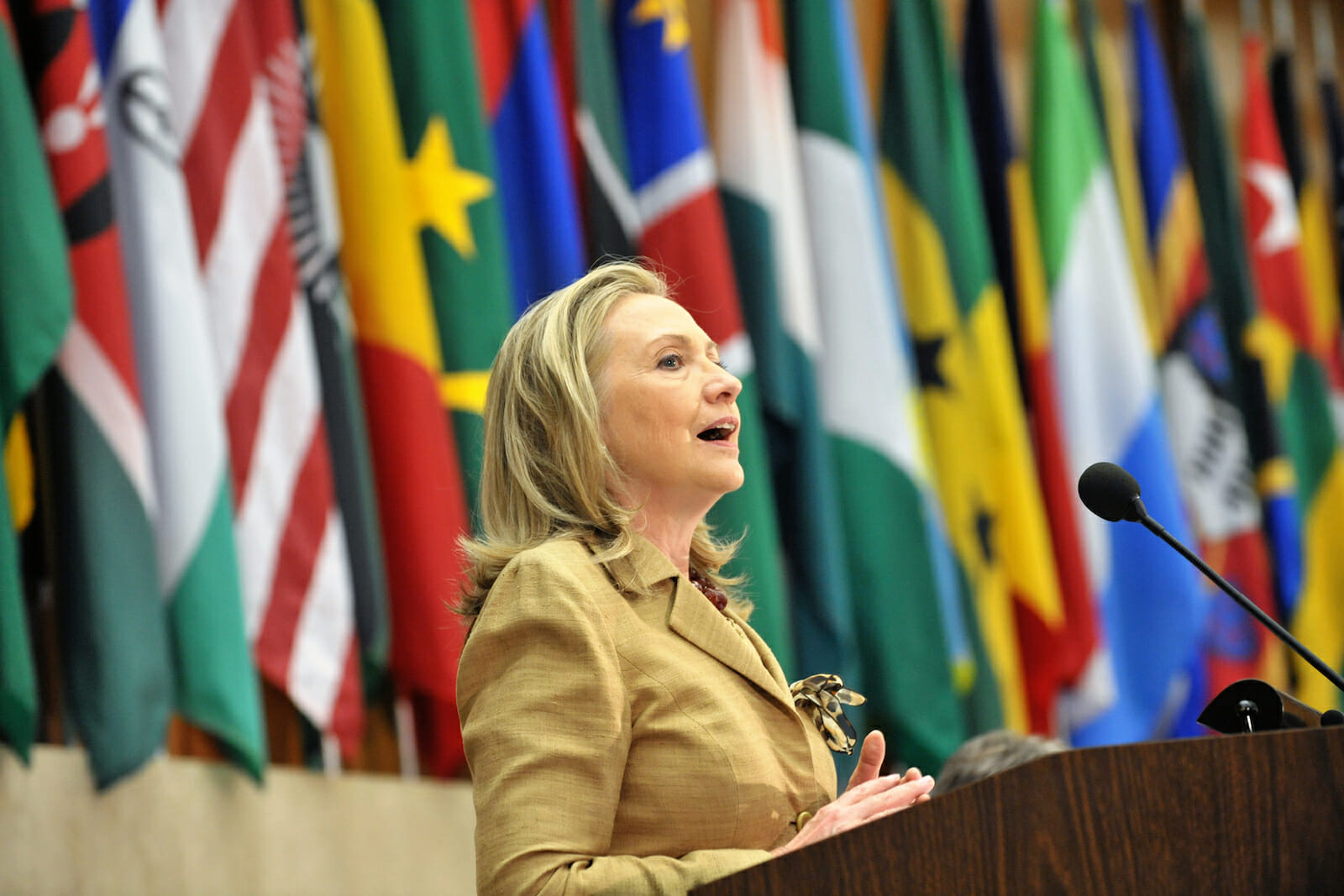
Mali is a Victim of Inconsistent U.S. Foreign Policy
On December 20, 2012, President Obama suspended Mali from any benefits under the African Growth and Opportunity Act (AGOA) program – due to its coup in 2012. At the same time, President Obama approved South Sudan’s eligibility under the program—a country in conflict with its neighbor Sudan. The African Growth and Opportunity Act (AGOA) was established by Congress in May 2000 to create jobs in sub-Saharan Africa—to help reduce poverty—and build trade capacity with the United States. To qualify under the AGOA, countries needed to show improvements in democracy, rule of law, human rights, transparency, and a commitment to work standards that exclude the use of child labor. The AGOA includes over 6,000 items that can be exported to the U.S. duty-free and quantity free. The program currently supports over 300,000 jobs (indirectly benefiting 10 million people) in sub-Saharan Africa.
The AGOA legislation’s ‘third-country fabric’ provision was set to expire on September 30, 2012. Congress failed to approve the renewal of this important provision prior to holding the AGOA Forum in Washington on June 14-15, 2012, which was attended by over forty African ministerial delegations. The textile issue, a top priority on the forum’s agenda, was stuck in a Senate committee for over a year. The SB 2007 had attracted unrelated amendments, by several senators, which only added to the problem for its extension. The lack of passage cost Africa thousands of jobs; the bilateral forum was viewed by the African delegates as a failure, with economic relations being undermined. The Obama administration needed to press for the Bill’s timely passage, so we would not be perceived as neglecting trade relations with Africa.
The AGOA third-country fabric provision was essential to the survival of Africa’s textile industry. The Senate’s inaction cost African countries a thirty-five percent reduction in new apparel orders. Apparel buyers, concerned about meeting delivery deadlines shifted orders out of Africa, which accounts for 95 percent of the apparel imports. The U.S. continues to state that it supports trade, open markets, and economic expansion–the cornerstone–of sub-Saharan Africa’s growth and prosperity.
At the time the AGOA Forum was being held, President Obama announced on June 14, 2012, the “President’s Policy Directive (PPD) for sub-Saharan Africa.” The June 15 Christian Science Monitor article, “United States’ new sub-Saharan African plan: trade not aid,” noted, “Two efforts that will be critical to the future of Africa: strengthening democratic institutions and boosting broad-based economic growth, including through trade and investment.” Secretary Hillary Clinton on a ten-day tour in August, to nine African countries, elaborated on the PPD program but also used the opportunity to denigrate China for extracting Africa’s resources—while touting the U.S. engagement of Africa.
The U.S. is often considered a fair-weather-friend, resulting from our inconsistent Foreign Policy in Africa. The AGOA has been used by the U.S. to gain support at the UN, with veiled threats of disqualification to the host countries. I describe a number of cases in my book When the White House Calls that occurred while serving as U.S. ambassador. The textile manufacturers were constantly “on pins and needles,” with issues such as third-country fabric sourcing, and embargos on goods by customs officials; which affected fair competition and timely access to our markets. In addition, when the U.S. places sanctions on countries, it is the people that suffer, not the leaders.
Mali had been a stable democracy for almost twenty years, before the Arab Spring regime change in Egypt, Tunisia, and Libya, that destabilized the Sahel region. Mali suffered the most with al-Qaeda in the Islamic Maghreb (AQIM), and affiliated Islamists, taking control of the northern part of the country. With the overthrow of Muammar Gaddafi, large caches of weapons reached these Islamists–who outgunned the Malian army—which led to a mutiny by the military on March 21, 2012. Since then Islamists have undertaken atrocities in the towns of Timbuktu, Gao, and Kidal, causing thousands of Malians to flee to neighboring countries. The lack of UN and U.S. support for action to subdue the Islamists led to further instability, with the removal of the interim prime minister in December 2012.
Now the Obama administration wants to punish Mali by taking away the AGOA eligibility, one of the few economic programs offered by the U.S. to this impoverished country. Lack of access to the U.S. markets will affect the small and medium enterprises (SMEs) from establishing trade relations with American companies. Cutting Mali off is incongruous with the goals of the PPD to strengthen democratic institutions and boost economic growth–through trade and investment.
Malians do not understand why they were disqualified from the benefits of AGOA, while South Sudan, in conflict with its neighbor Sudan, was qualified. The rich Abyei oil region, that separates both countries, had been an economic obstacle at the time of peace negotiations in 2005. The United States was a key broker in the Comprehensive Peace Agreement (CPA) that left the oil issue unresolved, with an irrational border between both countries. The U.S. was willing to accept the two independent states without defining the borders, just to get the agreement done.
In South Sudan, thousands of people have also suffered from ethnic tribal fighting and rustling of large herds of cattle. “Attacks and counterattacks have involved members of the Murle and Nuer tribes, have spiked in the last [twelve] months…,” as was noted in a March 2012 Los Angeles Times article. Some 120,000 people have been displaced in the recent attacks in Jonglei state, the article further noted. At the same time, in Mali, almost 500,000 people have been displaced, resulting from radical Islamists enforcing Sharia, the brutal Islamic law.
To disqualify Mali from the few benefits they currently receive from AGOA “is beyond the pale.” Mali’s exports to the U.S. amounted to $7 million from precious stones, gold, art, and antiques, while imports from the U.S. exceeded $40 million. The U.S. needs to enhance trade with Mali to help reduce poverty–overcome strife–and strengthen the country. The U.S. has a myopic view of sub-Saharan Africa and the chaos created by regime change in North Africa, which has severely affected the Sahel region. The U.S. needs to embrace Mali—not make it a victim of our inconsistent Foreign Policy.

